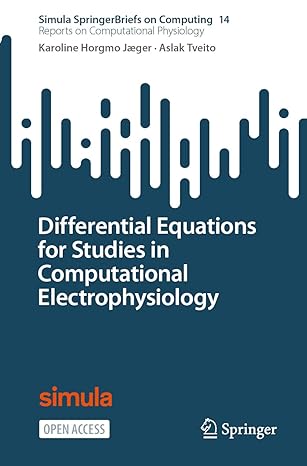Differential Equations for Studies in Computational Electrophysiology (Reports on Computational Physiology)
Differential Equations for Studies in Computational Electrophysiology is a specialized and authoritative text that explores the essential role of differential equations in modeling the electrical behavior of cells, tissues, and organs. This book is part of the acclaimed Reports on Computational Physiology series, offering cutting-edge insights into the mathematical foundations and computational tools used in modern physiology research.
Electrophysiology is a field that investigates the electrical activities of biological systems, from the firing of a single neuron to the propagation of cardiac action potentials. Understanding these processes requires advanced mathematical modeling techniques, and differential equations serve as the backbone of these models. This book provides a systematic introduction to the mathematical formulations, numerical methods, and simulation approaches used in computational electrophysiology.
Key Features
-
In-depth Coverage – Explains ordinary and partial differential equations in the context of electrophysiological modeling.
-
Application-Oriented – Demonstrates how mathematical models describe neural and cardiac electrical activity.
-
Computational Tools – Discusses simulation methods, numerical stability, and parameter estimation.
-
Interdisciplinary Approach – Bridges mathematics, computational science, and physiology.
-
Research-Oriented – Offers insights into cutting-edge topics in bioelectric modeling and physiological systems analysis.





